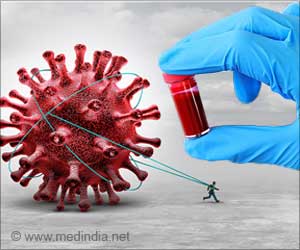Long COVID symptoms are affecting the health of millions of people across the globe. However, COVID-19 vaccination protects against long COVID.

Advertisement
Is Long COVID Permanent?
Some 18 percent of patients -- most of whom were younger than 60 -- had still not returned to work more than a year after their initial infection, according to the study by the largest workers' compensation fund in New York.At least 65 million people are thought to have long COVID, according to a latest review of 200 COVID-19 studies published in Nature Reviews Microbiology journal earlier this month.
The US-based researchers estimate that the condition is present in 10 percent of the 651 million COVID-19 cases that have been documented worldwide, reports South China Morning Post.
Advertisement
How to Reduce the Risk of Getting Long COVID?
The World Health Organization (WHO) published a standardized clinical case definition of long COVID in 2021, but experts say diagnosis is still a challenge.Most Asian countries do not track the number of long COVID patients.
Experts believe that the best protection from long COVID is vaccination.
Another study this month warned that COVID-19 patients have an elevated risk of death for at least 18 months after they get infected.
Heart Problems More Common After COVID-19
COVID patients were more likely to develop numerous cardiovascular conditions compared to uninfected participants, which may have contributed to their higher risks of death, according to the study of nearly 160,000 participants published in Cardiovascular Research, a journal of the European Society of Cardiology (ESC)."The findings indicate that patients with COVID-19 should be monitored for at least a year after recovering from the acute illness to diagnose cardiovascular complications of the infection, which form part of long COVID," said Professor Ian CK Wong of the University of Hong Kong, China.
Compared to uninfected individuals, the likelihood of COVID-19 patients dying was up to 81 times higher in the first three weeks of infection and remained five times higher up to 18 months later.
Source-IANS










